John Locke (1632 – 1704) was an English philosopher whose works have had an enormous and profound influence on western philosophy. He is regarded as the founder of modern philosophical empiricism, a concept that the human mind is a blank slate at birth and that knowledge is based on experience. Locke is also considered as the father of the political philosophy called Liberalism, which is based on the principle of liberty and equality. His other major contributions to philosophy include the development of the influential social contract theory. Apart from epistemology and political philosophy, Locke also made significant contributions to the fields of theology, religious tolerance and educational theory. The writings of John Locke had a tremendous impact on subsequent western thought and his influence remains even three centuries after his death. Know more about the contributions of John Locke through his 10 major accomplishments.
#1 HIS BOOK, THE ESSAY, IS ONE OF THE MOST INFLUENTIAL WORKS IN PHILOSOPHY
The most renowned work of John Locke, An Essay Concerning Human Understanding, was published in December 1689. In the book, Locke examines the human mind with respect to its contents and operations to uncover the basis of human knowledge and understanding. The Essay is divided into four books. Book I rules out the notion of innatism, that the human mind is born with ideas and knowledge. Book II argues that all of our ideas, including that of God, come from experience. Book III is concerned with language and the role it plays in our theorizing. Book IV, the final part, focuses on knowledge in general and its limitations. The Essay is regarded as one of the greatest books in philosophy and it has had a huge impact on intellectual development, especially in Europe and America. It is considered one of the most influential works with its ideas deeply and profoundly affecting subsequent philosophical thought.
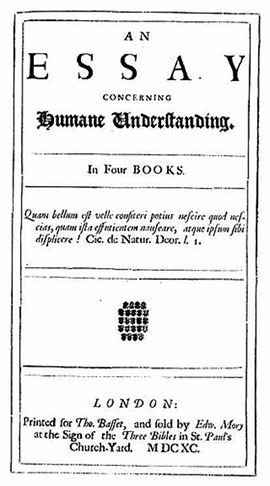
#2 HE IS REGARDED AS THE FOUNDER OF MODERN PHILOSOPHICAL EMPIRICISM
Empiricism is a theory that all knowledge is based on experience derived from the senses. In the Essay, John Locke made the most elaborate and influential presentation of empiricism. Thus, even though the concept had been explored earlier, he is regarded by many as the founder of modern philosophical empiricism. Locke postulated that, at birth, the mind was a tabula rasa, a Latin phrase meaning “blank slate”. He maintained that humans are born without innate ideas; and data is added and rules for processing are formed solely by one’s sensory experiences. He also emphasized the freedom of individuals to author their own soul. It must be noted that Locke was clear that the mind had inherent capacities, predispositions and inclinations prior to receiving any ideas from sensation. However, these are triggered only when it receives ideas from sensations. Empiricism remains a major view in epistemology, the branch of philosophy concerned with study of human knowledge.
#3 HE WROTE THE INFLUENTIAL POLITICAL WORK TWO TREATISES OF GOVERNMENT
Two Treatises of Government is a work of political philosophy by John Locke which was published anonymously in 1689. The First Treatise is a detailed critique of a work called Patriacha by Robert Filmer. In it, Locke attacks the theory of Patriarchalism which emphasized the absolute right of the king, as the paternal head of state. He undermines the scriptural support that Filmer has offered to support his theory and he argues that Filmer’s thesis can lead only to slavery. The Second Treatise has a number of themes which include the nature of government, conquest and slavery, property and right of revolution. The Two Treatise is the most important political work of John Locke, which has notably influenced political thought since its publication.
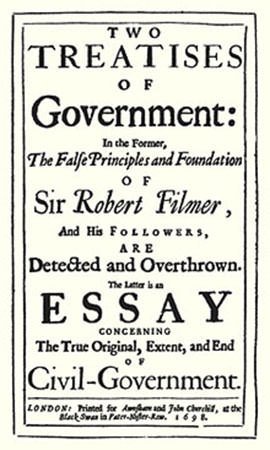
#4 HE DEVELOPED THE LABOUR THEORY OF PROPERTY
Locke’s Second Treatise has an influential account on the nature of private property known as the labour theory of property. According to Locke, persons own themselves and therefore their own labour. When a person works, that labour enters into the object. Thus, the object becomes the property of that person. Thus one has a right to acquire private property through one’s labour with natural resources. However there are two conditions. The first is the Waste Proviso which states that one must not own so much property that some of it goes to waste. The second is the Enough-And-As-Good Proviso, also known as the Lockean Proviso. It maintains that one may only appropriate property if “there is enough, and as good, left in common for others”. In other words while acquiring property one should not fail to leave sufficient resources for others and no one should be worse off than they were before. The labour theory of property was a forerunner to the famous labour theory of value of Karl Marx.
#5 HIS POLITICAL VIEWS INFLUENCED THE AMERICAN DECLARATION OF INDEPENDENCE
In the Second Treatise, Locke has argued that humans were in a state of nature before civil societies. While all men are free, state of nature is unstable as individuals are under constant threat of harm. Locke claims that governments were formed by them to preserve their inalienable natural rights to “life, liberty, and property”. This was a social contract in which individuals would receive protection from physical harm, security for their possessions etc. in return of relinquishing certain rights. Thus rulers have an obligation to be responsive to the needs and desires of the citizens; no ruler can claim absolute power; and, most importantly, citizens are obliged to revolt and overthrow any government that fails to secure their natural rights. Locke’s political views were influential in 18th-century America and many regard them as the philosophical basis of the American Declaration of Independence. It is known that many of the drafters, particularly Thomas Jefferson, were well acquainted with Locke’s writings.
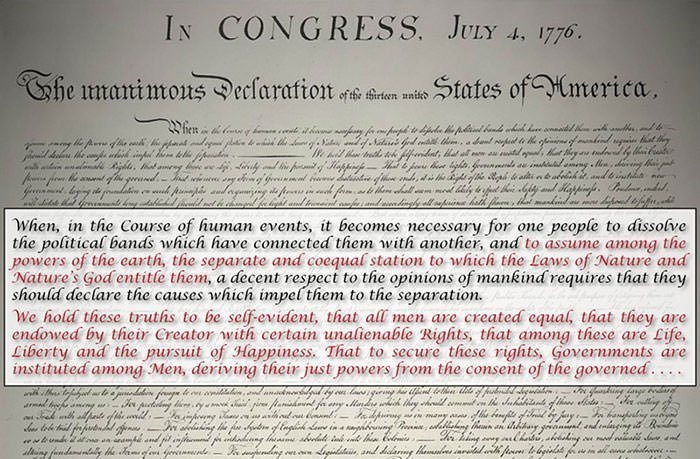
#6 LOCKE IS CONSIDERED THE FATHER OF LIBERALISM
Liberalism is a political philosophy or world-view founded on ideas of liberty and equality. It first became prominent in the west in the 18th century during the Age of Enlightenment. Liberalism rejected the prevailing social and political norms of hereditary privilege, state religion, absolute monarchy and the divine right of kings. John Locke is credited with founding liberalism as a distinct philosophical tradition. He developed the then radical notion that government acquires consent from the governed and therefore authority is derived from the people rather than from above. Locke emphasized the right of citizens to overthrow a monarch who violates the social contract. He argued that “conjugal society is made up by a voluntary compact between men and women”. He was also a proponent of the separation of church and state; and of an individual having the right to follow his own religious beliefs without a religion being imposed by the state. For his contribution to the philosophy, John Locke is known as the “Father of Liberalism”.
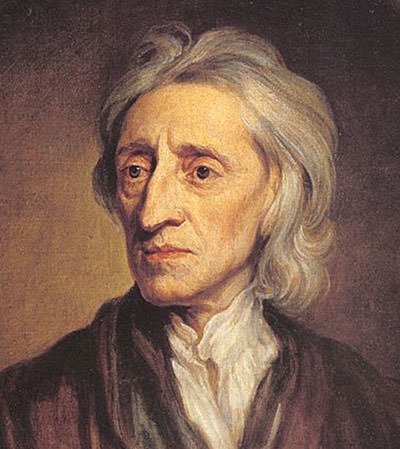
#7 HIS VIEWS STRONGLY INFLUENCED EUROPEAN EDUCATION
During his time, John Locke was regarded as an expert on educational matters. His most important work in the field is Some Thoughts Concerning Education, which was published in 1693. As Locke believed that the human mind at birth was a “blank slate”, he stressed that it was important for a child to make the right associations. He wrote that “the little and almost insensible impressions on our tender infancies have very important and lasting consequences.” Thus the associations that one makes when young are the foundation of the self and more important than those made later. This theory became known as “associationism” and strongly influenced 18th century educational theory. The book also explains how to educate the mind using three distinct methods: the development of a healthy body; the formation of a virtuous character; and the choice of an appropriate academic curriculum. Some Thoughts Concerning Education remained the most important philosophical work on education in England for over a century. It was translated into nearly all major European languages and almost all 18th century European educational writers acknowledged its influence.
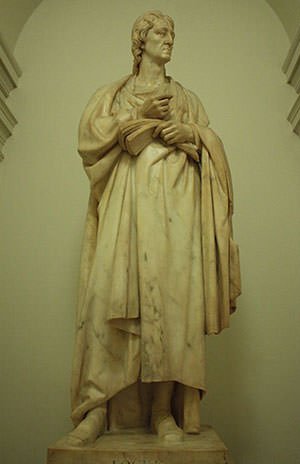
#8 HIS RELIGIOUS WRITINGS HAD AN INFLUENCE ON PROTESTANT THOUGHT
The Reasonableness of Christianity, published in 1695, is the most important of many theological writings of John Locke. The primary objective of the book is to show that it is reasonable to be a Christian. Locke suggests that there is sufficient reason to assume that the central truths of Christianity were communicated to us by God through his messenger, Jesus of Nazareth. An important feature of the book was that it says to be a true Christian and worthy of salvation an individual only needs to believe one simple truth: that Jesus is the Messiah. This was at a time when there were competing groups who laid the requirements to attain salvation and Locke’s work was radical in the sense that few theologians made the requirements for Christian faith so minimal. The religious writings of Locke maintain that every individual has within him the abilities necessary to comprehend his duty and to achieve salvation. John Locke had a substantial influence on Protestant Christian thought for at least a century.
#9 HE PROVIDED AN ELOQUENT REASONING FOR RELIGIOUS TOLERANCE
John Locke formulated a classic reasoning for religious tolerance which can be seen in his Letters Concerning Toleration (1689–1692). Three arguments were central to his reasoning: judges, state or human beings are not capable of evaluating the truth-claims of competing religious standpoints; enforcing a single religion would have an adverse effect as faith cannot be compelled by violence; and coercing religious uniformity would lead to more social disorder than allowing diversity. Furthermore, he believed that those holding political power were no better at discovering the true religion than anyone else and so they should not attempt to enforce their views on others. Locke did place a limit to tolerance stating that any religious group which posed a threat to political stability or public safety should not be tolerated. Locke’s writings on tolerance were very progressive for the time. However, he believed that atheists should not be tolerated as lack of faith made them untrustworthy and irresponsible.
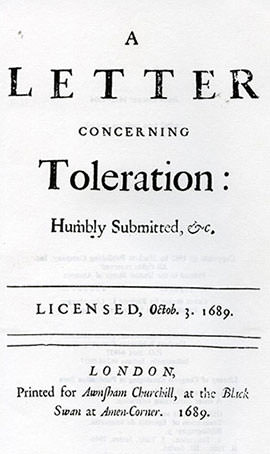
#10 He IS CONSIDERED ONE OF THE GREATEST WESTERN PHILOSOPHERS
John Locke is regarded as one of the most influential philosophers of modern times. He founded the modern theory of Liberalism and made an exceptional contribution to modern philosophical empiricism. He was also influential in the areas of theology, religious tolerance and educational theory. Other accomplishments of John Locke include making the first substantial inquiry in the field of linguistics by examining the role of language in human mental life; and being the first to explore modern concepts of identity and the self. Some of the best known later philosophers, such as Voltaire, Jean-Jacques Rousseau, David Hume and Immanuel Kant, built their philosophies on the foundation that Locke had laid out. John Locke is considered the first philosopher of the Age of Enlightenment. He hugely effected subsequent western thought and his influence remains even three centuries after his death.


you have a great blog here! would you like to make some invite posts on my blog?
Thanks for your remark but we don’t write invite posts.